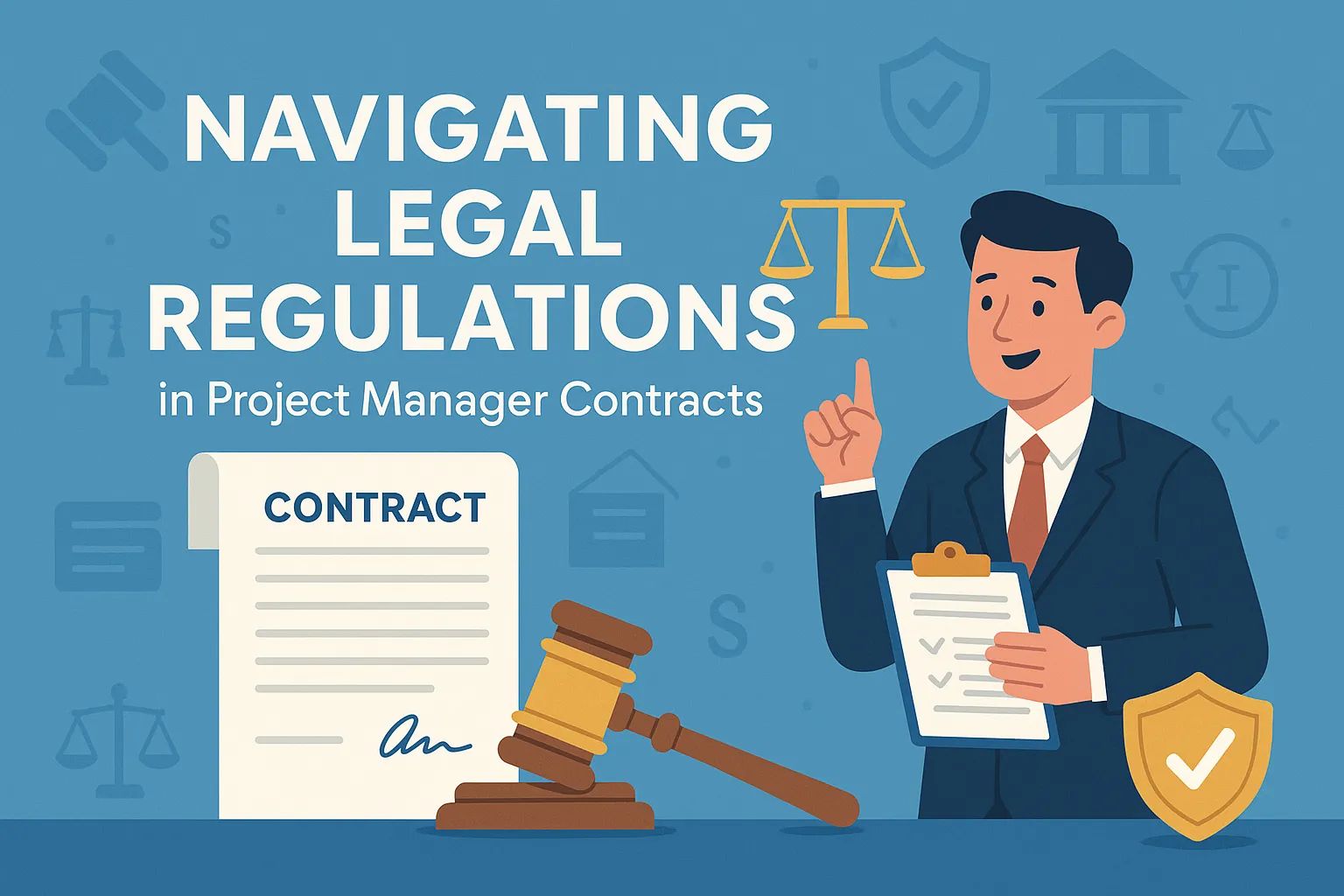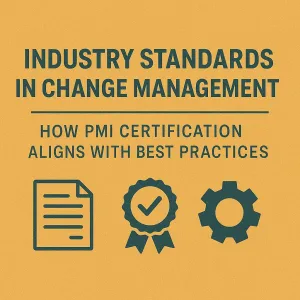Introduction to Project Manager Contracts
Contracts serve as the backbone of successful project execution. Understanding the legal landscape that governs these agreements is crucial for both legal professionals and project managers. This section will provide a foundational understanding of project manager contracts, their significance, and the legal implications involved.
Definition of Project Manager Contracts
A project manager contract is a legal agreement that outlines the terms and conditions under which a project manager will operate. This contract specifies various elements, including the scope of work, timelines, budget, and responsibilities of both the project manager and the client. It serves as a formal document that ensures all parties are aligned on expectations and deliverables throughout the project lifecycle [6].
Importance of Contracts in Project Management
Contracts play a central role in project management for several reasons:
- Clarity and Accountability: They provide clear guidelines on what is expected from each party, reducing the likelihood of misunderstandings and disputes [8].
- Risk Management: Contracts help in identifying potential risks and outlining strategies to mitigate them, which is essential for the successful completion of a project [2].
- Legal Protection: They offer legal protection to all parties involved, ensuring that there are remedies available in case of non-compliance or breach of contract [5].
Overview of Legal Implications in Project Management Agreements
The legal implications of project manager contracts are significant and multifaceted:
- Contractual Obligations: Each party has specific duties and responsibilities that must be fulfilled to achieve the project’s objectives. Understanding these obligations is crucial for compliance and successful project delivery [3].
- Compliance with Laws: Project manager contracts must adhere to relevant laws and regulations, which can vary by jurisdiction. This compliance is essential to avoid legal repercussions and ensure the contract is enforceable [5].
- Dispute Resolution: Contracts often include clauses that outline how disputes will be resolved, whether through mediation, arbitration, or litigation. This foresight can save time and resources in the event of a disagreement [9].
Legal Framework Surrounding Project Manager Contracts
Navigating the legal landscape of project management contracts is crucial for both project managers and legal professionals. Understanding the various laws and regulations that govern these agreements can help ensure compliance and mitigate risks. Here are the key points to consider:
Overview of Contract Law Basics
- Definition and Importance: Contract law is the body of law that governs the rights and obligations arising from agreements. It is essential for project managers to understand the fundamental principles of contract law, including offer, acceptance, consideration, and the intention to create legal relations. These elements form the foundation of any binding agreement and are critical in project management contexts to ensure that all parties are clear on their responsibilities and expectations [10][15].
- Types of Contracts: Project managers often encounter various types of contracts, including fixed-price, cost-reimbursable, and time and materials contracts. Each type has its own legal implications and risk factors that must be understood and managed effectively [11].
Applicable Local, State, and Federal Regulations
- Local Regulations: Project managers must be aware of local laws that may affect contract terms, such as zoning laws, licensing requirements, and labor regulations. These can vary significantly from one jurisdiction to another and can impact project execution and compliance [11].
- State Regulations: Each state may have specific laws governing contracts, including statutes of limitations, consumer protection laws, and regulations related to specific industries. Project managers should familiarize themselves with these state-specific regulations to avoid legal pitfalls [11].
- Federal Regulations: For projects involving federal funding or contracts, compliance with federal regulations is mandatory. This includes understanding the Federal Acquisition Regulation (FAR) and other relevant federal laws that govern procurement and contract management [11][14].
Industry-Specific Legal Considerations
- Construction Law: In the construction industry, project managers must navigate a complex web of regulations, including safety standards, environmental laws, and labor laws. Understanding these legal requirements is essential for ensuring compliance and avoiding disputes [11][14].
- Technology and Software Contracts: In the tech sector, contracts often include specific clauses related to intellectual property, data protection, and software licensing. Project managers must be aware of these considerations to protect their organization’s interests and comply with relevant laws [11].
- Healthcare Regulations: For projects in the healthcare sector, compliance with regulations such as HIPAA (Health Insurance Portability and Accountability Act) is critical. Project managers must ensure that contracts address confidentiality and data security requirements to protect sensitive information [11].
Key Components of a Project Manager Contract
When drafting a project manager contract, it is crucial to include specific elements that ensure clarity and protect the interests of all parties involved. Here are the essential components that should be incorporated into any project manager contract:
- Scope of Work and Deliverables: This section outlines the specific tasks and responsibilities of the project manager. It should provide a detailed description of the project, including the expected deliverables and the standards to which they must adhere. A well-defined scope helps prevent misunderstandings and sets clear expectations for performance [5].
- Payment Terms and Conditions: Clearly stating the payment structure is vital. This includes the total budget amount, payment schedule, and any conditions that may affect payment, such as milestones or deliverables that must be met before payment is released. Transparency in financial arrangements helps maintain a good working relationship and ensures that both parties are aware of their financial obligations [2].
- Timeline and Milestones: A project manager contract should include a detailed timeline that outlines key milestones and deadlines. This timeline serves as a roadmap for the project, helping to keep all parties accountable and on track. It is essential to specify start and delivery dates to avoid delays and ensure timely completion of the project [1][3].
- Liability and Indemnity Clauses: These clauses are critical for protecting both the project manager and the client from potential legal issues. The liability clause defines the extent to which the project manager is responsible for any damages or losses incurred during the project. Indemnity clauses can protect the project manager from claims arising from the client’s actions or negligence, ensuring that they are not held liable for issues beyond their control [4].
- Termination Conditions: It is important to outline the conditions under which the contract can be terminated by either party. This section should specify the notice period required for termination and any penalties or consequences that may arise from early termination. Clear termination conditions help mitigate risks and provide a framework for resolving disputes should they arise [3][5].
Incorporating these key components into a project manager contract not only ensures compliance with legal regulations but also fosters a collaborative environment where both parties can work towards a successful project outcome. Understanding these elements is essential for legal professionals and project managers alike, as they navigate the complexities of project management agreements.
Understanding Liability and Risk in Project Manager Contracts
Understanding the legal landscape surrounding contracts is crucial for both project managers and legal professionals. This section delves into the concepts of liability and risk allocation, which are fundamental to ensuring successful project execution and compliance with legal regulations.
Different Types of Liability
- Professional Liability: This type of liability arises from the professional services provided by project managers. It encompasses claims related to negligence, errors, or omissions in the execution of their duties. Project managers must be aware of the standards of care expected in their profession to mitigate the risk of professional liability claims [3].
- Contractual Liability: This liability stems from the obligations outlined in the contract itself. If a project manager fails to fulfill the terms of the agreement, they may be held liable for any resulting damages. It is essential for project managers to clearly understand the terms of their contracts to avoid breaches that could lead to legal repercussions [4].
- General Liability: This encompasses broader risks that may arise during the course of a project, including bodily injury or property damage. Project managers should ensure that their contracts address these potential liabilities to protect themselves and their organizations [8].
Risk Management Strategies in Contracts
Effective risk management is vital in project management agreements. Here are some strategies that can be employed:
- Risk Allocation: Contracts should clearly define how risks are allocated between parties. This includes identifying which party is responsible for specific risks and how those risks will be managed. Proper risk allocation can help prevent disputes and ensure that all parties are aware of their responsibilities [5].
- Contingency Planning: Including contingencies in cost estimates and schedules can help project managers prepare for unforeseen circumstances. This involves setting aside resources or time to address potential risks that may arise during the project lifecycle [5].
- Change Management: Maintaining a register of changes and variations is crucial for managing risks associated with project modifications. This allows project managers to track alterations and their impacts on the project, ensuring that all parties are informed and in agreement [9].
Insurance Considerations for Project Managers
Insurance plays a critical role in managing liability and risk in project management contracts. Here are key considerations:
- Indemnification Clauses: These clauses protect project managers by requiring other parties to compensate them for certain losses or damages. Including indemnification language in contracts can help mitigate financial exposure [4].
- Insurance Requirements: Project managers should ensure that their contracts specify the types and amounts of insurance coverage required. This may include professional liability insurance, general liability insurance, and workers’ compensation. Adequate insurance coverage can provide a safety net against potential claims and liabilities [6].
- Risk Transfer to Insurers: By transferring certain risks to insurers, project managers can limit their exposure to liability. This involves carefully evaluating which risks can be insured and ensuring that appropriate coverage is in place [5].
Negotiating Project Manager Contracts
Negotiating project manager contracts is a critical aspect of project management that requires a thorough understanding of both the legal landscape and the specific needs of the project. Here are some key points to consider for effective negotiation:
Tips for Successful Negotiation
- Start with a Draft: Begin the negotiation process with a preliminary draft of the contract. This allows both parties to have a clear starting point and facilitates discussion on specific terms and conditions [4].
- Break It Down: Divide the contract into smaller, manageable sections. This approach makes it easier to address each component thoroughly and reduces the complexity of the negotiation process [4].
- Keep Initial Terms Simple: When proposing initial terms, aim for simplicity. This helps prevent misunderstandings and sets a collaborative tone for the negotiation [4].
- Know Your “Why”: Understand the underlying reasons for your negotiation stance. This clarity will help you articulate your needs and priorities effectively [4].
- Prioritize Key Objectives: Identify and prioritize your key objectives before entering negotiations. This ensures that you remain focused on what is most important to you and your organization [4].
Common Negotiation Pitfalls to Avoid
- Ignoring the Other Party’s Interests: Failing to understand the goals and priorities of the other party can lead to a breakdown in negotiations. It is essential to research and acknowledge their needs to find common ground [3].
- Overcomplicating Terms: Introducing overly complex terms can create confusion and hinder agreement. Strive for clarity and simplicity in your language and terms [4].
- Neglecting Documentation: Failing to document agreements and changes during negotiations can lead to disputes later on. Ensure that all discussions and agreements are clearly recorded [4].
Importance of Clear Communication and Documentation
Effective communication is paramount in negotiations. It fosters trust and ensures that all parties are on the same page regarding expectations and responsibilities. Additionally, clear documentation of all agreements is crucial for legal enforceability. Key concepts such as offer, acceptance, consideration, and mutual consent must be clearly articulated to ensure the validity of the contract [6].
By following these guidelines, project managers and legal professionals can navigate the complexities of contract negotiations more effectively, leading to successful project outcomes and stronger professional relationships.
Dispute Resolution Mechanisms in Project Manager Contracts
The inclusion of dispute resolution clauses in contracts is not merely a formality; it is a critical component that can significantly influence the outcome of conflicts that may arise during the project lifecycle. Understanding the legal landscape surrounding these clauses is essential for both project managers and legal professionals. Here are some key points to consider:
Importance of Including Dispute Resolution Clauses
- Prevention of Escalation: Including clear dispute resolution mechanisms helps prevent conflicts from escalating into more serious legal battles. It establishes a framework for addressing issues before they become unmanageable, thereby maintaining project momentum and relationships between parties involved [1].
- Clarity and Guidance: These clauses provide clarity on how disputes will be handled, which can save time and resources. They outline the steps to be taken, ensuring that all parties are aware of their rights and obligations in the event of a disagreement [1][4].
- Legal Protection: By specifying dispute resolution methods, parties can protect themselves from potential legal pitfalls. This is particularly important in complex projects where misunderstandings can lead to significant financial and reputational damage [4].
Common Methods of Dispute Resolution
- Mediation:
- Description: Mediation involves a neutral third party who facilitates discussions between the disputing parties to help them reach a mutually acceptable solution.
- Pros:
- Cost-effective and quicker than litigation.
- Preserves relationships by promoting collaboration.
- Arbitration:
- Description: Arbitration is a more formal process where a neutral arbitrator makes a binding decision after hearing arguments and evidence from both sides.
- Pros:
- Generally faster than court litigation and can be less expensive.
- The process is private, which can protect sensitive information.
- Litigation:
- Description: Litigation involves taking disputes to court, where a judge or jury makes a binding decision.
- Pros:
- Provides a formal legal framework and the possibility of appeal.
- Public record can deter parties from engaging in bad faith actions.
Case Studies: Real-World Examples of Project Manager Contract Issues
Contracts serve as the backbone of successful project execution. They not only delineate the roles and responsibilities of each stakeholder but also act as crucial risk mitigation tools. Understanding the legal landscape that governs these agreements is essential for both project managers and legal professionals. Here, we explore real-world examples of contract disputes, the lessons learned from various contract outcomes, and the impact of legal regulations on project results.
Examples of Contract Disputes and Resolutions
- Dispute Over Scope Creep: A project manager faced a significant dispute when the client requested additional features that were not included in the original contract. The project manager had to negotiate a change order, which involved revising the contract terms to accommodate the new requirements. This situation highlighted the importance of clearly defining the project scope in the contract to prevent misunderstandings and disputes later on [2].
- Termination for Convenience: In another case, a project manager was terminated by the client under a “termination for convenience” clause. The project manager contested the termination, arguing that it was executed in bad faith. The resolution involved mediation, which emphasized the need for clear language in contracts regarding termination rights and the conditions under which they can be exercised [7].
- Payment Delays: A common issue faced by project managers is delayed payments from clients. In one instance, a project manager had to take legal action to enforce payment terms outlined in the contract. This case underscored the necessity of including specific payment schedules and penalties for late payments in contracts to protect the project manager’s financial interests [3].
Lessons Learned from Successful and Unsuccessful Contracts
- Successful Contracts: Contracts that included detailed descriptions of deliverables, timelines, and payment terms often led to smoother project execution. For instance, a project that adhered to a well-structured contract experienced fewer disputes and was completed on time and within budget. This success can be attributed to the clarity and mutual understanding established at the outset [5].
- Unsuccessful Contracts: Conversely, contracts that lacked specificity often resulted in misunderstandings and disputes. A notable example involved a project where vague language regarding responsibilities led to finger-pointing between the client and the project manager when issues arose. This situation illustrates the critical importance of precise language and comprehensive detail in contract drafting [9].
Impact of Legal Regulations on Project Outcomes
Legal regulations play a pivotal role in shaping project management agreements. Compliance with relevant laws can significantly influence project outcomes. For instance:
- Regulatory Compliance: Projects that adhered to industry regulations and standards not only mitigated legal risks but also enhanced their credibility with stakeholders. A project manager who ensured compliance with local laws reported fewer legal challenges and a more favorable project environment [8].
- Risk Management: Understanding the legal landscape allows project managers to better anticipate potential issues and incorporate risk management strategies into their contracts. This proactive approach can lead to more successful project outcomes and reduced liability [1].
Conclusion: Best Practices for Navigating Project Manager Contracts
Understanding the legal landscape that governs project manager contracts is essential for both project managers and legal professionals. As these agreements serve as the foundation for successful project execution, it is crucial to be aware of the critical elements that should be included, the importance of legal compliance, and the need for proactive contract management. Here are the key takeaways:
Critical Elements in Project Manager Contracts:
- Clearly defined roles and responsibilities are paramount. This ensures that all parties understand their obligations and can work towards common goals effectively. Establishing Key Performance Indicators (KPIs) and reporting metrics at the outset can also help in tracking progress and accountability throughout the project lifecycle [4].
- Standardizing contract creation through pre-approved templates and clause libraries can streamline the process and reduce the risk of missing essential clauses that could pose risks to the organization [6][3]. This practice not only enhances efficiency but also ensures consistency across contracts.
Importance of Legal Compliance:
- Adhering to legal regulations is non-negotiable in project management. Federal projects, for instance, must comply with rigorous ethical standards and legal obligations, emphasizing the need for integrity, accountability, and transparency [5]. Legal professionals should ensure that all contracts are reviewed for compliance with applicable laws and regulations to mitigate potential risks.
Proactive Contract Management:
- Staying ahead of contract milestones is vital. Project managers should build in time for collaborative reviews and discussions to prevent delinquent spending and ensure timely renewals [8]. This proactive approach not only helps in managing risks but also fosters better relationships among stakeholders.
- Training non-legal teams to resolve issues can expedite the negotiation process and minimize delays, further enhancing the efficiency of contract management [2].
Find out more about Shaun Stoltz https://www.shaunstoltz.com/about/.
This post was written by an AI and reviewed/edited by a human.



